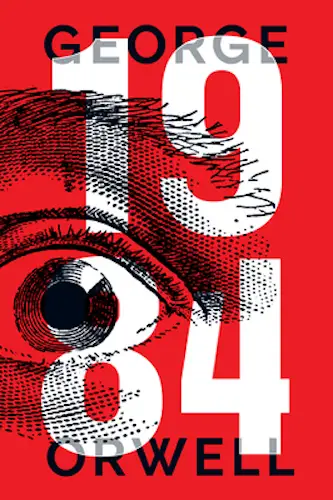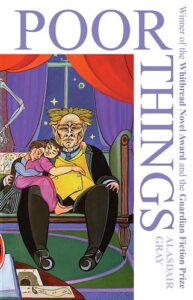1984
Book Author: George Orwell
Summary reviewed by:
Terrence Timmons
Terrence Timmons
Analyst
Bachelor of Arts (BA), University Of California, Santa Barbara 2019
With over 4 years of experience as an analyst. Terrence Timmons is committed to analyzing summaries without compromising on quality.
1984: Summary
Peek behind the curtain of tomorrow! The world of '1984' by George Orwell is not one you would recognise, nor one you'd wish to. In the state of Oceania, amidst the grim greyness of Airstrip One, formerly known as Britain, your every move is watched, every thought policed. Here, Big Brother’s ever-watchful eyes and the chilling Thought Police permeate an atmosphere of fear and submission.
In this society, freedom is a forgotten concept, where even language is manipulated as 'Newspeak' to restrict thought and individualism. Our protagonist, Winston Smith, wrestles with his growing disillusionment of this regime, ensnared in a job that demands him to rewrite history, to colour it favourably in the eyes of the Party. The Ministry of Truth, where he is employed, is a bitter irony, for the truth is ever malleable and elusive under the heavy boots of the ruling Party.
In this world of calculated lies, Winston dares to dream of truth and freedom. His rebellious flame is further kindled by the mysterious Julia, a cog in the Party machinery who, like him, nurtures a dangerous spark of defiance. Their love, in a society where love is a political act, becomes a quiet revolution, challenging the oppressive leviathan of the Party.
'1984' is a chronicle of love, defiance, and the human spirit's resilience against the monolithic machinery of totalitarianism. Join Winston as he navigates the labyrinth of his existence, facing daunting risks for the glimmer of freedom. Remember, Big Brother is watching you.
Spoilers (watch a short ad to reveal spoilers)
1984: Genres
Fiction
Dystopian Fiction
Social Science Fiction
Political Fiction
Satire
1984: Main Characters
Winston Smith: A low-ranking member of The Party who begins to question the government’s oppressive policies. He is thoughtful and intellectual with a rebellious spirit, shown when he starts a secret affair with Julia and joins the Brotherhood.
Julia: A mechanic in the Fiction Department of the Ministry of Truth, she is rebellious and sensual. Her illicit love affair with Winston serves as her form of rebellion against the Party’s stringent rules.
Big Brother: The symbolic leader of The Party. His omnipresent image and constant surveillance represent the totalitarian nature of the government.
O’Brien: A high-ranking member of The Party, initially admired by Winston, eventually his torturer. His loyalty to the Party and its values is unswerving and ruthless, displayed in his brutal breaking of Winston.
1984: Themes
Totalitarianism and Communism: The novel paints a picture of a society completely controlled by the totalitarian state, reflecting Orwell’s concerns about Stalinist Russia.
Language as Mind Control: Newspeak, the language developed by The Party, is used as a method of controlling thought. Its continual simplification restricts the range of thought, demonstrating language’s power over reality.
Loyalty and Betrayal: The Party demands absolute loyalty, and anyone who does not conform is seen as a traitor. Winston’s betrayal of Julia under extreme torture reflects the Party’s ability to manipulate emotions.
Surveillance and Paranoia: The constant surveillance by telescreens, the Thought Police, and even children under the Junior Spies program results in a society steeped in fear and paranoia.
The Mutability of History: The Party’s control over information and history is a critique of totalitarian regimes’ attempts to control truth.
Individual vs Collective Identity: The book illustrates the conflict between an individual’s desire for personal freedom and identity, and the state’s demand for conformity and collective identity.


1984
Date Published: June 8, 1949
Disclaimer: As an Amazon Associate I earn from qualifying purchases.




